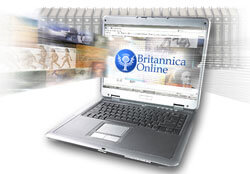
As Encyclopedia Britannica, a fixture in reference books, announced yesterday that it has created its last print edition, GoodeReader talked to Mark Gross, CEO of Data Conversion Laboratory, about what this type of development holds for academia and for the perception of what value a book has.
“Clearly the trend of reference books over the last few years has been to move to electronic editions which are sold on subscription basis to individuals, or bundled by aggregators for licensing to various institutions. DCL has converted a half dozen specialized encyclopedias just in the last year,” explained Gross today. “For general encyclopedias & reference books – for which students are the biggest consumers –they have gotten used to reading everything online. And for specialized references – the advantages of online are just overwhelming – they can be kept updated regularly, and the cost of short-run printing is eliminated. For publishers it can be a windfall; it means that they can bundle their content to attract markets they never could reach before, and can afford to publish long-tail content for which they could never find enough customers.”
As more and more mainstays in reference material shift to strictly online formats, what will that hold for academic institutions and reference libraries?
“How we read or interact with e-text will always change as the technology changes, readers could become nearly paper thin someday, or may be built into heads-up displays in glasses – or maybe just implants with direct feeds – all that’s a little unpredictable. What’s interesting to me though is that content doesn’t change as quickly – and while there is demand for the latest, there’s also demand for 50-year old newsreels, for revolutionary war documents, and great-grandmother’s memoirs.”
“But once you organize your information and factoids into a content management system you can make product in many forms and in many collections – it becomes trivial to create year-books, or even month books. What’s also clear to me is that it’s not all about automated generation of content – in fact as more information comes on stream the editor’s role of curating content, and identifying what’s important and what’s trivial, becomes even more important. Britannica’s core competence of organizing important information might become even more important in the coming years as the information deluge continues.”
As for the future of reference books and consumers’ changing perceptions of what a print book is even for, Gross made some enlightening predictions about where the technology may take us.
“As e-capabilities are added to books, markups will become more sophisticated. e-Texts will have audio- and video capabilities and will interactively link students to authors, instructors, databases, websites, and other students. They will also have the ability to enlarge type, view text in different languages, and let students write margin notes that can be saved. But the most important I think is the ability to search and find massive amounts content with a few key strokes – that by itself is the killer app.”
“We just need to look at the events of the last year, and what’s gotten traction to see much of what the next few years will look like. Within the next two to three years just about all reference materials will be electronic – the reasons to do so are just too compelling, and the rapidity with which people are adapting and expecting electronic products is much higher than anyone expected. It used to be said that older people wouldn’t adapt, or that teachers wouldn’t want to modify their approaches – it’s just not true. The Britannica ending print production is just one example of an organization breaking multi-century traditions to make e-products.”
Mercy Pilkington is a Senior Editor for Good e-Reader. She is also the CEO and founder of a hybrid publishing and consulting company.